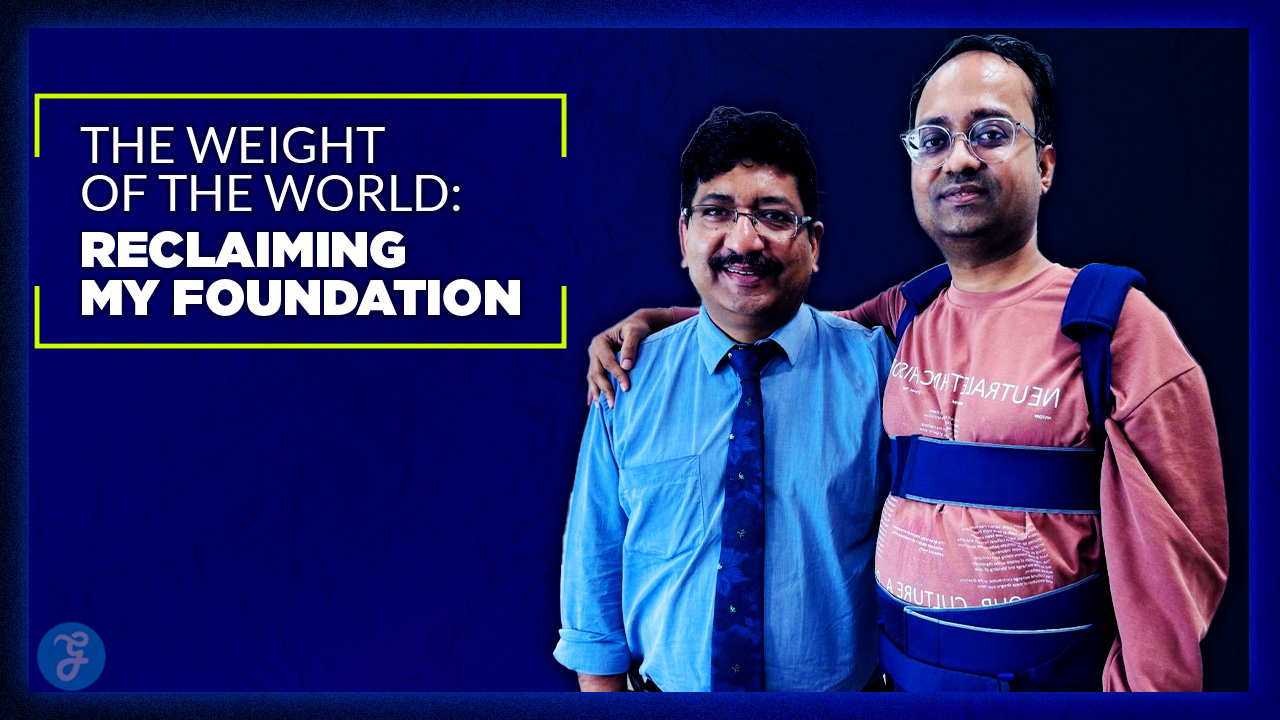Taxes are an essential part of life, but managing them can be tricky. In Singapore, the tax system is efficient and relatively straightforward, yet many people unknowingly make mistakes that could cost them thousands of dollars.
Whether you’re an individual taxpayer, a business owner, or an investor, avoiding these errors can help you save money and stay compliant with the Inland Revenue Authority of Singapore (IRAS).
In this guide, we’ll explore ten common tax mistakes in Singapore, their financial consequences, and how to avoid them. By understanding these pitfalls, you can make smarter tax decisions and maximize your savings.
1. Failing to Keep Accurate Financial Records
Keeping accurate financial records is the cornerstone of effective tax management. Many taxpayers in Singapore overlook the importance of documenting their income, expenses, and deductions, leading to complications during tax filing.
Why This Mistake Happens:
- Disorganization or lack of knowledge about record-keeping requirements.
- Relying solely on bank statements, which might not capture all deductible expenses.
How It Costs You:
- Missed opportunities to claim eligible deductions.
- Increased risk of audits and penalties by IRAS if records are incomplete.
Solution:
- Use digital tools or apps like IRAS’s myTax Portal to organize receipts and financial documents.
- Retain records for at least five years, as required by law.
Table: Essential Records to Maintain
| Record Type | Examples | Retention Period |
| Employment income | Payslips, IR8A forms | 5 years |
| Business income | Sales invoices, receipts | 5 years |
| Rental income | Tenancy agreements, repair bills | 5 years |
| Donations | Receipts from registered charities | 5 years |
Real-Life Example:
Linda, a freelance graphic designer, failed to maintain detailed records of her business expenses. She missed claiming deductions for software subscriptions and internet bills, resulting in an overpayment of $2,000 in taxes. By using a cloud-based accounting app, she could track and categorize all her expenses accurately for the next tax season.
2. Overlooking Eligible Deductions
Deductions play a significant role in reducing your taxable income. However, many taxpayers fail to claim all the deductions they are entitled to, leaving money on the table.
Why This Mistake Happens:
- Lack of awareness about deductible expenses.
- Hesitation to claim deductions for fear of triggering an audit.
How It Costs You:
- Higher taxable income, resulting in overpayment of taxes.
Solution:
- Familiarize yourself with common deductions like:
- Course fees relief for skill upgrades.
- Earned income relief for working individuals.
- Parent relief for caring for elderly parents.
Table: Common Tax Deductions in Singapore
| Deduction Type | Eligibility | Maximum Relief |
| Course Fees Relief | Approved training courses | Up to $5,500 |
| Parent Relief | Supporting parents above age 55 | $5,500 – $9,000 |
| CPF Contributions | Voluntary contributions | Subject to CPF caps |
| NSman Relief | For active National Service personnel | Up to $5,000 |
Practical Tip:
Create a checklist of all potential deductions and cross-reference it with IRAS’s official website before filing your taxes. Keep supporting documents organized by category to make tax filing seamless.
3. Misclassifying Income Sources
Proper classification of income is crucial to ensure accurate tax reporting. Misclassifying income can lead to overpayment or penalties.
Why This Mistake Happens:
- Lack of understanding of what qualifies as taxable income.
- Mistakes in categorizing employment, investment, or business income.
How It Costs You:
- Errors in tax filing can result in audits, penalties, or underutilized deductions.
Solution:
- Clearly distinguish between:
- Employment income: Wages, bonuses, and allowances.
- Investment income: Dividends, rental income, and capital gains.
- Business income: Profits from freelance work or sole proprietorships.
Table: Taxable Income Categories
| Income Type | Examples | Taxability |
| Employment Income | Salary, bonuses, benefits | Fully taxable |
| Investment Income | Dividends, rental income | Taxable if sourced locally |
| Foreign-Sourced Income | Overseas income remitted to SG | Taxable under conditions |
| Business Income | Freelancing, consulting | Fully taxable |
Case Study:
John, an investor, failed to classify his rental income separately from his capital gains. This led to an overpayment of $3,500 in taxes. After consulting a tax professional, he revised his approach and saved significantly the following year.
4. Filing Taxes Late
Missing tax deadlines is a common yet avoidable mistake that can lead to penalties and interest charges.
Why This Mistake Happens:
- Procrastination or underestimating deadlines.
- Miscommunication with tax agents or accountants.
How It Costs You:
- IRAS imposes penalties of 1% per month for late payments, capped at 5%.
- Loss of refunds if claims are not filed within the stipulated period.
Solution:
- Mark key tax dates in your calendar, such as:
- 15 April for e-filing (individuals).
- 30 November for corporate tax filings.
- Engage a tax agent to ensure timely submissions.
Table: Tax Filing Deadlines
| Taxpayer Type | Deadline | Notes |
| Individual Taxpayers | 15 April | E-filing deadline |
| Companies | 30 November | Filing for Year of Assessment |
| Property Owners | Same as individual | Declare rental income |
Example:
Sarah, a business owner, missed the corporate tax filing deadline due to poor planning. She incurred a penalty of $500. By hiring a tax consultant and using reminders, she now ensures all filings are submitted on time.
5. Neglecting to Declare Foreign Income
In Singapore, foreign income is generally not taxable unless remitted into the country. However, failure to declare remitted income can lead to compliance issues.
Why This Mistake Happens:
- Misunderstanding remittance rules.
- Unawareness of IRAS requirements.
How It Costs You:
- Penalties for non-disclosure of taxable income.
Solution:
- Understand what qualifies as taxable foreign income.
- Consult IRAS guidelines or a tax professional to ensure compliance.
Table: Taxation of Foreign Income
| Income Type | Taxability in Singapore | Conditions |
| Overseas Salary | Not taxable unless remitted | Applies to tax residents |
| Investment Returns | Taxable if remitted | Local bank accounts |
| Business Profits | Taxable if remitted | Relevant to tax residents |
Tip:
If you regularly receive foreign income, set up a consultation with a tax expert to ensure you comply with remittance rules.
6. Ignoring CPF Contributions for Tax Relief
The Central Provident Fund (CPF) is a valuable tool for retirement planning and tax savings. Many taxpayers fail to utilize CPF contributions for tax relief.
Why This Mistake Happens:
- Lack of knowledge about CPF relief limits and eligibility.
- Hesitation to make voluntary contributions.
How It Costs You:
- Higher taxable income, missing out on significant savings.
Solution:
- Contribute voluntarily to CPF accounts for retirement, housing, or medical needs.
- Understand the annual relief cap for CPF contributions.
Table: CPF Contribution Limits
| CPF Account | Purpose | Relief Cap |
| Ordinary Account | Housing, education | Subject to CPF Annual Limit |
| Special Account | Retirement savings | Subject to CPF Annual Limit |
| Medisave Account | Healthcare needs | Subject to CPF Annual Limit |
Detailed Example:
Consider Alex, who voluntarily contributed $10,000 to his CPF account. This reduced his taxable income by the same amount, saving him $1,500 in taxes at a 15% marginal rate.
7. Overlooking Reliefs for Dependents and Donations
Tax reliefs for dependents and donations can significantly reduce taxable income, yet many taxpayers fail to claim them.
Why This Mistake Happens:
- Lack of awareness about eligibility.
- Failing to maintain proper documentation.
How It Costs You:
- Higher tax liability due to unclaimed reliefs.
Solution:
- Claim reliefs like Qualifying Child Relief or Parent Relief.
- Keep receipts for donations made to IRAS-approved institutions.
Table: Reliefs and Benefits
| Relief Type | Eligibility | Maximum Relief |
| Child Relief | For children under 16 | Up to $4,000 per child |
| Parent Relief | For supporting parents | $5,500 – $9,000 |
| Donation Relief | Donations to approved charities | 250% of donation value |
Example:
Jane donated $5,000 to a registered charity. She received a tax deduction of $12,500 (250% of the donation amount), significantly reducing her tax bill.
8. Not Seeking Professional Tax Advice
Navigating Singapore’s tax system without professional help can lead to missed opportunities and errors.
Why This Mistake Happens:
- Attempting to save money on tax agent fees.
- Overconfidence in personal tax knowledge.
How It Costs You:
- Missed deductions and credits.
- Increased risk of non-compliance with IRAS regulations.
Solution:
- Hire a qualified tax professional for personalized advice.
- Regularly update yourself on tax changes with professional assistance.
Table: Benefits of Professional Advice
| Service | Advantages | Cost Range |
| Tax Agent Services | Accurate filing, compliance | $100–$500 per filing |
| Financial Planning | Tax-saving investment strategies | $500–$2,000 annually |
9. Misreporting Work-from-Home Expenses
With the rise in remote work, many taxpayers claim deductions for work-from-home expenses. However, misreporting these claims can lead to audits and penalties.
Why This Mistake Happens:
- Confusion over eligible expenses.
- Lack of proper documentation for shared utilities or home office setups.
How It Costs You:
- Rejection of claims or additional scrutiny from IRAS.
Solution:
- Use the simplified deduction method (working hours x $0.52) for utilities or calculate actual costs proportionally.
- Keep invoices for internet, electricity, and equipment purchases.
Table: Work-from-Home Deduction Options
| Method | Details | Eligibility |
| Simplified Method | $0.52 per hour worked | Suitable for simplicity |
| Actual Expense Method | Based on actual utility bills | Requires detailed records |
10. Overlooking Start-Up Tax Exemptions
Entrepreneurs often miss out on start-up tax exemptions (SUTE), a valuable benefit for new businesses.
Why This Mistake Happens:
- Lack of awareness about eligibility criteria.
- Mismanagement of tax filings during the start-up phase.
How It Costs You:
- Paying higher taxes during critical growth phases.
Solution:
- Claim exemptions for the first $100,000 of taxable income in the first three years.
- Engage an accountant to ensure filings comply with IRAS standards.
Table: SUTE Benefits
| Taxable Income | Exemption Rate | Max Exemption |
| First $100,000 | 75% | $75,000 |
| Next $100,000 | 50% | $50,000 |
Final Thoughts
Avoiding these ten tax mistakes can save you thousands of dollars and provide peace of mind during tax season. By staying informed, keeping accurate records, and seeking professional advice when needed, you can maximize your tax savings while ensuring compliance with IRAS regulations.
Whether you’re an individual taxpayer or a business owner, proactive tax planning is essential for financial success. Take the first step today by reviewing your tax practices and making necessary adjustments.








































